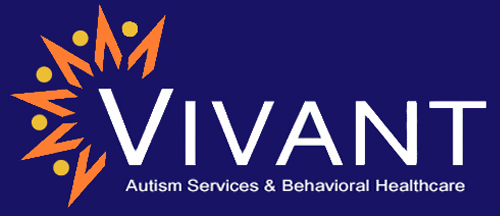Trauma-Responsive Care
Since Vivant was formed in 2021, the highest priority for the organization has been to promote physical, psychological, social and moral safety and well-being for the individuals we serve, for our staff and for our communities. In their Concept of Trauma and Guidance for a Trauma-Informed Approach, the Substance Abuse and Mental Health Services Administration (SAMHSA) advised behavioral healthcare organizations that “trauma-informed care…is regarded as essential to the context of care” and suggested that behavioral health organizations must “[incorporate] key trauma principles into the organizational culture.[1]
By embedding a trauma-informed organizational framework, behavioral healthcare organizations can create the conditions for recovery, healing and wellness among the individuals and families being served, their staff and within their communities. Trauma-informed organizations promote the following principles:
-
- Trauma-informed organizations understand the impact of intrapersonal, interpersonal, social and community trauma on individuals and systems as well as advocating for the paths to recovery from traumatic experiences.
- Trauma-informed organizations recognize the diverse signs and symptoms of trauma in the individuals they treat, in their staff members, in the community and within society.
- Trauma-informed organizations respond to signs and symptoms of trauma by fully integrating knowledge about trauma into its policies, procedures and practices, including the use of appropriate treatment interventions based on the individual’s intersection of identities.
- Trauma-informed organizations actively seek to resist re-traumatization for individuals being served, staff and communities by examining and revising systems and processes that are likely to cause re-trauma.
For individuals and families evaluating their treatment options, research suggests that trauma-responsive organizations help effectively support the conditions to promote resiliency and recovery across diagnoses and throughout the behavioral health continuum of care.
-
- Trauma-Informed Approaches in Primary Healthcare and Community Mental Healthcare: A Mixed Methods Systemic Review of Organisational Change Interventions [2]
- Sanctuary in a residential treatment center: creating a therapeutic community of hope countering violence [3]
- Mindful energy and information flow: A reflective account of S.E.L.F. connection during COVID-19 [4]
- Trauma-Informed and Affirmative Mental Health Practices with LGBTQ+ Clients [5]
[1] Substance Abuse and Mental Health Services Administration. SAMHSA’s Concept of Trauma and Guidance for a Trauma-Informed Approach. HHS Publication No. (SMA) 14-4884. Rockville, MD: Substance Abuse and Mental Health Services Administration, 2014.
[2] Lewis, Natalia V., Bierce, Angel, Feder, Gene S., Macleod, John, Turner, Katrina M., Zammit, Stan, Dawson, Shoba, Trauma-Informed Approaches in Primary Healthcare and Community Mental Healthcare: A Mixed Methods Systematic Review of Organisational Change Interventions, Health & Social Care in the Community, 2023, 4475114, 18 pages, 2023. https://doi.org/10.1155/2023/4475114
[3] Kramer, M.G. (2016), “Sanctuary in a residential treatment center: creating a therapeutic community of hope countering violence”, Therapeutic Communities: The International Journal of Therapeutic Communities, Vol. 37 No. 2, pp. 69-83. https://doi.org/10.1108/TC-01-2015-0005
[4] Lucas JJ. Mindful energy and information flow: A reflective account of S.E.L.F connection during COVID-19. Qual Soc Work. 2021 Mar;20(1-2):214-221. doi: 10.1177/1473325020973302. PMID: 34253967; PMCID: PMC8261367.
[5] Levenson JS, Craig SL, Austin A. Trauma-informed and affirmative mental health practices with LGBTQ+ clients. Psychol Serv. 2023;20(Suppl 1):134-144. doi: 10.1037/ser0000540. Epub 2021 Apr 15. PMID: 33856846.
